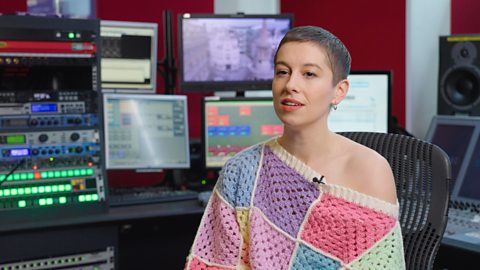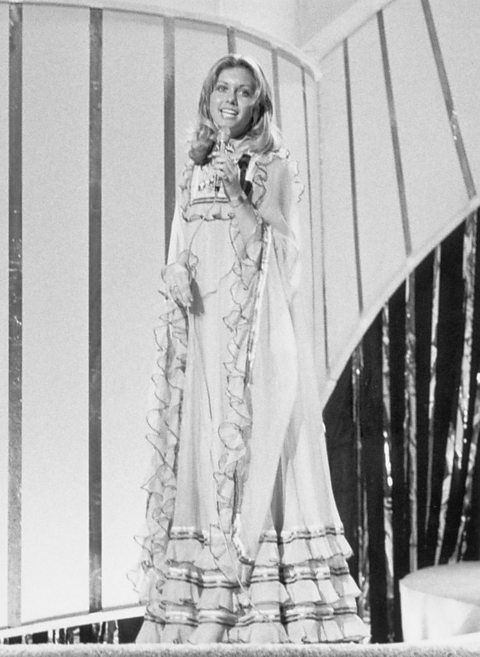
Two. It can be one of the loveliest numbers around when you think of afternoon tea, the first days of romance or a An acronym of Buy One, Get One Free - a special offer used in shops to encourage customers to purchase a particular item. offer down the supermarket.
Mention that number to a passionate Eurovision fan, however, and you may get a piece of their mind.
When it comes to the annual song contest, two - or should we say the second song performed in the running order in the final - has become known among fans as a draw of doom. In 67 editions of the competition, the song which follows the contest opener has never taken the trophy.
But does the position a nation performs in genuinely affect its chances? ¬йґєєўЌш „“≥»лњЏ Bitesize spoke to statistician Dr Liam Brierley from the Universities of Liverpool and Glasgow and psychologist Dr David Maidment from Loughborough University to check if weвАЩre all just overthinking the draw.
What is the effect of the Eurovision running order?
Dr Brierley looked at data from other researchers when considering this question, including a study by three
This study found, among other observations, that the running order can have a positive influence on songs performed later on in the show. Dr Brierley explained that, according to this research: вАЬA song moves one place up the leaderboard, on average, than it otherwise would if itвАЩs performed eight positions later on the night.вАЭ For example, if Song A was performed first on the night and finished in 15th place, the theory goes that if it was instead performed last in a running order of the same 26 songs, Song A would finish, on average, three places higher up the board, in 12th place.
Shift into psychological theory and being first up may not be as bad as weвАЩd first think. Dr Maidment said: вАЬWith any kind of sequence - in this case, songs - each one is an item and theyвАЩre happening one after the other. The first song gets really well remembered because itвАЩs new, weвАЩre interested in it and weвАЩre probably all really excited because itвАЩs the kick-off of Eurovision.вАЭ
After that, we can experience what Dr Maidment describes as a trough: вАЬEverything else really dips. Every song, or item, tends to interfere or override with previous one and so our memory of those isnвАЩt so great. Then, towards the end, because stuff doesnвАЩt happen after it, itвАЩs well-remembered again. Obviously, thereвАЩll be some biases - if a song is novel, weвАЩll take an interest in it because our brains really like things that are new and innovative so weвАЩll pay it more attention, or if a song comes on where we have an invested interest. We call that salience.вАЭ

Which quarter of the draw is best to sing from?
Dr BrierleyвАЩs own research for Bitesize took in various factors, including the maximum points available to a song, its running order position and also which quarter of the show it is sung in. He looked at the contests between 1957 and 2023 when the number of countries in the final varied between 10 and 27, and found different results from this wider pool. Unlike the 1999-2019 study, he didnвАЩt include factors such as performance, language, or how the song was staged.
He explained: вАЬYour ultimate rank is very slightly associated with running order, once you correct for the vastly different number of songs between contests. You can expect to move one place up the leaderboard going last versus first.вАЭ
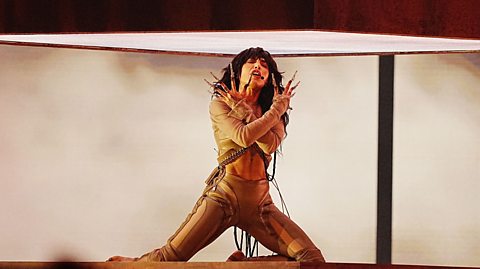
If the 26 songs for the final are split (roughly) into quarters, Dr Brierley also found that singing in the last quarter is the most favourable and can shunt a song up 2.4 places on average. The second quarter is next best (where the previous two winners, UkraineвАЩs Kalush Orchestra and Loreen performed) with a 1.7 place boost. The third quarter is next and - in potentially bad news for hosts Sweden who perform first this year - the opening quarter is, statistically, the one where we find the songs with the lowest positive impact.
Quarters are usually formed by the showвАЩs commercial breaks - when viewers in the UK usually see a brief sketch or film. Looking at them from a psychological perspective, Dr Maidment broadly agreed: вАЬIf weвАЩre splitting it into quarters, whatвАЩs happening is what we call chunking. Things are quite well remembered when we group them together, so the last quarter makes sense because itвАЩs the most recent in our memories and I think the second quarter is quite interesting.
вАЬIt could be that, after the first chunk, we get a bit fatigued, have a bit of a break and then suddenly weвАЩre awake again and more interested.вАЭ
Is song number two a Eurovision curse?
вАЬCould it just be due to chance?вАЭ is Dr BrierleyвАЩs initial reaction to song two never claiming Eurovision gold.
He demonstrated why: вАЬThink about 50,000 alternate realities and in each of them, running order doesnвАЩt matter. A winning position is picked at random from every contest in the last 67 years.вАЭ
This simulation, called a hypothesis test, could then show how many of these alternative realities also had a вАШcursedвАЩ position, from which no song has ever won.

A surprising 99.9% of those realities produced positions from which no song won. Dr Brierley continued: вАЬAs we get to later years with more countries, itвАЩs not really that unusual to expect a position thatвАЩs never won. Nobody has ever won in position 26 [in real life] as itвАЩs only had 10 chances [meaning only 10 contests so far have had a song 26].
вАЬSo maybe we ask how many of those alternative realities have a вАЬcursedвАЭ position within positions one to 10 [reflecting the smallest ever number of entries, in the 1957 and 1958 Contests] and itвАЩs still 27%. Even without any kind of curse, over 67 years of the contest, youвАЩd get a вАЬcursedвАЭ position about a quarter of the time, just by statistical chance.вАЭ
Are we biased against song number two?
For Dr Maidment, the вАШsong two phenomenonвАЩ ties in with the trough mentioned earlier, once the audience is past the excitement of watching the first song. But one other aspect to consider is when TV commentators mention song two as being unlucky. He explained: вАЬBecause we know itвАЩs вАЬthe dreaded number twoвАЭ, weвАЩre biased. That can have an impact, even if itвАЩs unconscious, to the judges and the audience, that it never wins. They might not even phone in or vote for it, because they see it as a wasted vote.вАЭ
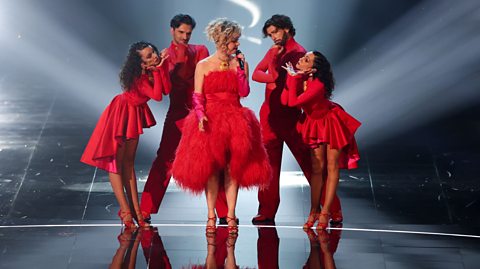
It all ties in with something called unconscious bias, which also links to our superstitions: вАЬIf we believe song two is a curse, itвАЩs because weвАЩre going to be doing everything we can to back up that assumption, that bias, and thatвАЩs true for lots of different things. We always want to reaffirm what we believe is true.вАЭ
But there is still hope. In 2003, the junior version of the Eurovision Song Contest, involving child and teenage performers, was held for the very first time. The winning country was Croatia - singing from second in the draw. Perhaps the adult Eurovision jinxвАЩs days are numbered too.
This article was published in April 2024
Quiz: Can you put these Eurovision winners in the correct order?
Måneskin, Loreen, Johnny Logan - they're are all champs but who lifted the trophy the earliest?
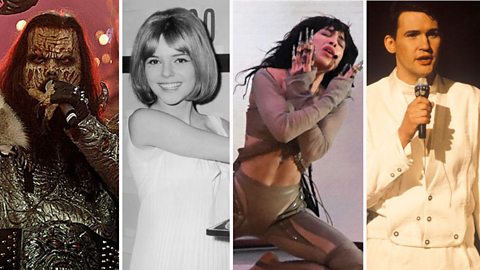
Spotting cultural references in Eurovision
The meanings behind the glitter, ballads and pyrotechnics.
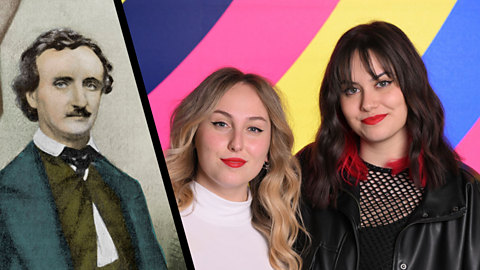
Is there a formula for winning Eurovision? The experts speak
¬йґєєўЌш „“≥»лњЏ Bitesize spoke to five people with different perspectives and experiences of the competition.
